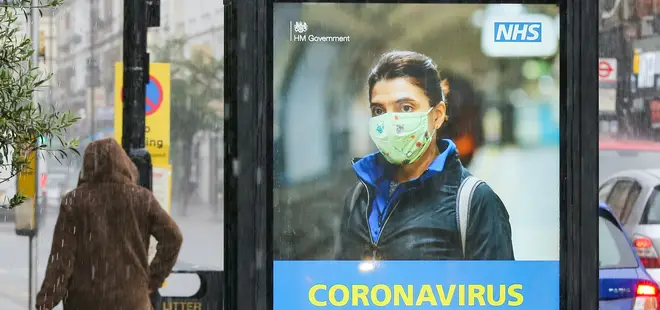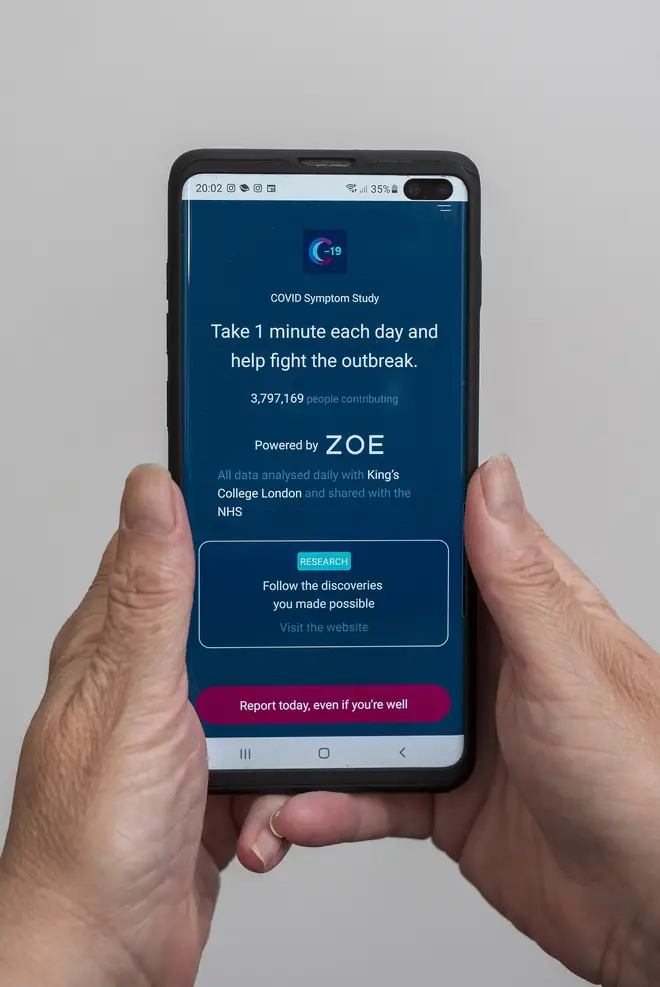
Henry Riley 4am - 7am
5 October 2020, 00:54 | Updated: 16 November 2020, 19:22

Academics researching the long-term effects of coronavirus have urged the Government to highlight the issue through an awareness campaign.
A report from the Tony Blair Institute for Global Change warns the effects of so-called 'long Covid' could turn out to be a bigger public health problem than excess deaths.
Those suffering with the condition have reported bouts of breathlessness, chronic fatigue and brain fog months after initially falling ill with the virus.
The authors of the paper say they believe the campaign "would help drive compliance with containment measures such as the use of masks" at a time when there are fears the Government is "in danger of losing the public" due to poor communication and local lockdown restrictions.
Read more: Almost 16,000 coronavirus cases added due to system glitch
Read more: Government 'did not listen to local experts' before bringing in lockdowns

Hancock: NHS will have 40 'long-Covid' centres in place by end of month
In the report Professor of Genetic Epidemiology at King's College London, Tim Spector, said that little attention was paid to the infected population who were not sick enough to go to hospital in the early stages of the pandemic.
It is now known that sufferers who did not attend hospital make up 99% of cases.
He said it turned out that Covid-19 was not just a bad case of flu as many believe, but that it behaved more like an autoimmune disease which affects multiple systems in the body.

28-year-old Long Covid sufferer warns young people of long term effect
Prof Spector said the app launched in March by his team at King's College London and the health-science company ZOE - 'COVID Symptom Study' - has been able to capture a wider range of symptoms people were experiencing after receiving data from more than four million people.
Researchers learned that "a great many people didn't get better after two weeks as expected", Prof Spector said, adding: "We kept following them and found out that a significant number still had problems after months.
"This is the other side of Covid: the long-haulers that could turn out to be a bigger public-health problem than excess deaths from Covid-19, which mainly affect the susceptible elderly."
Read more: David Davis laughs when asked if he understands government Covid strategy
The report said the app indicates around 10% of those taking part in the survey had symptoms of long Covid for a month, with between 1.5% and 2% still experiencing such symptoms after three months.
The authors said these appear to be the most reliable statistics on which to base a rough estimate of the scale of long Covid in the population, adding that while there is no clear evidence about prevalence in asymptomatic cases, it is likely to be lower than these percentages.

The report said long Covid seems rare in those under 18 and over 65, with higher prevalence among those of working age.
The median age of those affected is 45 and it affects women more than men.
"As Professor Spector says, long Covid is likely a bigger issue than excess deaths as a result of Covid, but, crucially, the risk must be considered alongside the economic impact and other health impacts linked to Covid restrictions," the paper concluded.
Read more: Coronavirus outbreaks at UK universities climb above 50
Among their recommendations, the authors suggest further studies, awareness campaigns and mass testing to help with diagnosis.
Daniel Sleat, co-author of the report, said: "While long Covid poses a significant risk, it must be assessed alongside the wider impacts of Covid restrictions, both in economic and health terms, as governments determine their next steps on containment measures to avoid a full lockdown."